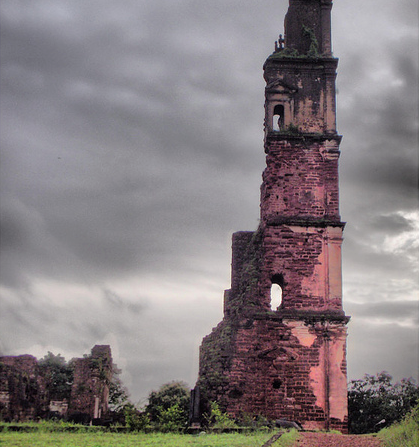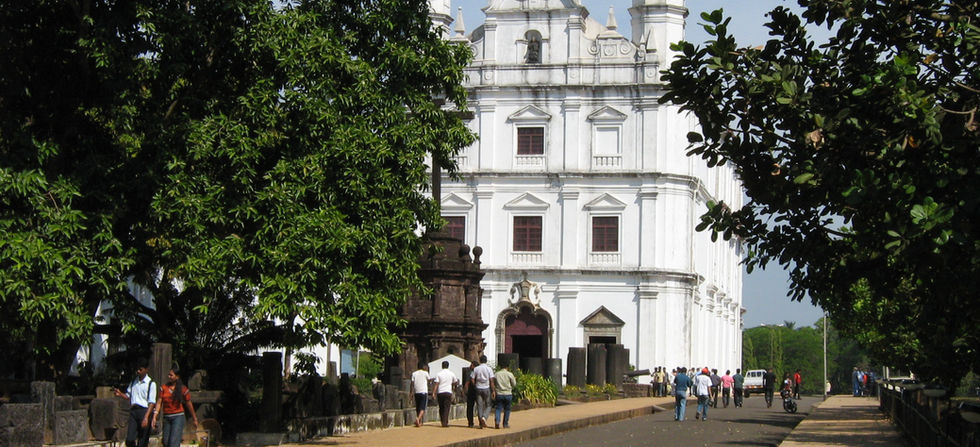KETEVAN SACRED MUSIC FESTIVAL
A unique sacred music festival
Founded in 2015 by Dr. Santiago Lusardi Girelli & Mr. Rudolph L. Kammermeier our Festival offers music programs, courses, and conferences with artists from several traditions from around the world: Carnatic, Christian, Sufi, Hindustani, Jewish, Orthodox, and many others. The Coexistence leitmotiv (motto) that we have chosen to inspire the Festival fuses music programs of different traditions.
Ketevan´s Music Festival was born to inspire a place of artistic, spiritual, and musical dialogue. In our scenarios we present concerts where artists from different traditions share their art, to develop the idea of artistic coexistence, as an engine propelling humankind towards mutually respectful and accepting cultural, social, and human coexistence.
We undertake the difficult task of intercultural dialogue and tolerance with immense respect and understanding of all traditions. Our team includes experts and advisers who ensure that each participant finds a space to share his/her art and heritage within the framework of tolerant and respectful inter-religious dialogue.
As music is known as the international language (or the language of the soul), there is no better way to learn to live with each other, other than through music.

THE MUSIC AND COEXISTENTIAL AWAKENING - Coexistence?
Our motto – a musical experience of coexistence - summarizes the idea of our Festival; in the beauty of art we discover ourselves in deep concordance with others, even beyond culture, race, and religion, we find ourselves to be part of the same weft and surrender to the beauty of music.
OLD GOA - UNESCO World Heritage Site.
From the 16th to the 18th centuries, when Old Goa’s population exceeded that of Lisbon or London, Goa’s former capital was considered the ‘Rome of the East’. You can still sense that grandeur as you wonder what’s left of the city, with its towering churches and cathedrals and majestic convents. Its rise under the Portuguese, from 1510, was meteoric, but cholera and malaria outbreaks forced the abandonment of the city in the 17th century. In 1843 the capital was officially shifted to Panaji. Some of the most imposing churches and cathedrals are still in use and are remarkably well preserved, while other historical buildings have become museums or simply ruins. The town of Old Goa, in its entirety, is an ideal backdrop for sacred and classical music. Its scenic beauty, history, and abundance of magnificent heritage sites make Old Goa so vibrant, that one could regard this unique location as a natural stage for select artistic events.
For more visit: https://en.wikipedia.org/wiki/Old_Goa
Festival Venues
The St. Monica Convent
Chapel of Our Lady of Rosary
St Augustine Ruins
St Cajetan Church
St Francis of Assisi Church
Penha da Franca Church
St Francis Xavier Basilica
St Anthony Chapel
Mahalaxmi Temple - Panjim

About Queen Ketevan
TOWARDS A MUSIC OF AWAKENING
Ketevan's fascinating life journey is the source of inspiration for our Festival. The course of her life unraveled like a petal in the wind, across distances and cultures, fuelling our creativity with the scent of her faith, commitment, and tolerance.
Queen Ketevan traveled thousands of kilometers across various cultures. She began her journey in Eastern Europe as the Queen of the Kingdom of Georgia. Fate had something else in store for her and led her to share her kingdom with the powerful Shab Abbas I, a Persian Muslim ruler. In Iran, Ketevan died a martyr in 1624, after a long and painful tormenting prelude to her demise. But Ketevan's journey did not end there. Legend has it that her remains were then taken to India in 1627 and buried in Old Goa by two Augustinian monks, who were devout witnesses and companions during the last years of her life.
Ketevan, then Queen of Georgia became a Martyr and was canonized as a saint by the Georgian Orthodox Church shortly after her demise. An ancient Portuguese document suggested that Ketavan's remains were held in a black sarcophagus kept in the St. Augustinian Convent in Old Goa, India, which were uncovered in 2004 in the Ruins thereof. DNA analyses suggest the remains are those of Ketevan, the Queen of the Kakheti Kingdom in Georgia. Final comparison of samples with living relatives is under investigation.
There is great hope that our Festival will soon be blessed by a patron, none other than Saint Queen Ketevan of Georgia.
Her life, as the lives of various saints around the world, is a lighthouse that illuminates the path of tolerance and coexistence.











